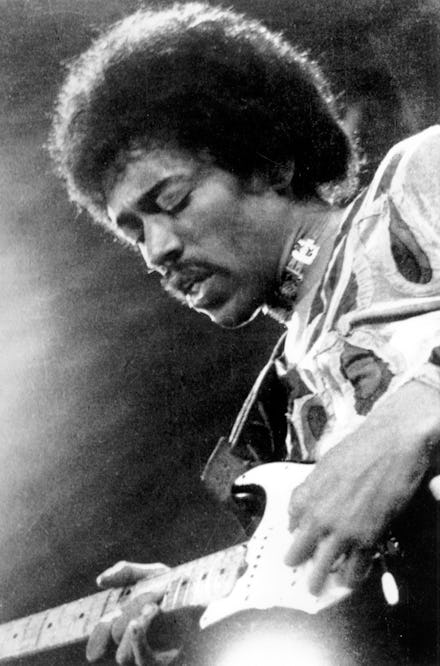Science Shows How Guitar Players' Brains Are Actually Different from Everybody Elses'

Whether it's playing "Stairway to Heaven" until your fingers bleed or always finding yourself in the center of a group of people intent on singing "Wagon Wheel," some things are common to all guitarists.
Including, as it turns out, their brain chemistry.
For starters, guitarists literally have the ability to synchronize their brains while playing. In a 2012 study in Berlin, researchers had 12 pairs of guitarists play the same piece of music while having their brains scanned. They discovered that the guitarists' neural networks would synchronize not only during the piece, but even slightly before playing. So, basically, guitarists can read each others' minds better than they can read music.
That synch happens in the areas of the brain that deal with music production and social cognition, so it makes a real difference in how tight a band sounds. When people talk about a band's chemistry, this may well be what they're seeing. It also explains why brothers are the core duo in so many famous rock bands.
But part of this ability to synchronize actually comes from one overarching truth about guitarists: they're more intuitive than most.
It sounds weird to solo while hooked up to a scanning machine, but a few brave guitarists pulled it off and contributed a major finding to the science of guitars. Researchers found that, when a guitarist shreds, he or she temporarily deactivates the brain region that routinely shuts down when achieving big-picture goals, signalling a shift from conscious to unconscious thought.
And when mere mortals (non-musicians) attempt a solo, the conscious portion of their brain stays on, which indicates that real guitarists are able to switch to this more creative and less practical mode of thinking more easily. Exhibit A:
All of the research makes it clear that guitarists are just super spiritual, intuitive people. Think about anyone from the Jimmy Page to the Edge right on up to Bon Iver. That sort of intuitive thinking runs all the way to how they learn. Unlike musicians who learn through sheet music, guitarists, according to researchers at Vanderbilt University, get a better grasp of a song by looking at someone playing it rather than reading the notes on paper.
The intuition might come from one truth every guitarist knows: playing guitar transcends basic brain chemistry. In a famous incident, Pat Martino, a renowned jazz guitarist from Philadelphia, had 70% of his left temporal lobe removed in his mid-30s due to a hemorrhage. When he came out of surgery, he couldn't play any longer.
But guitar-playing is about more than any one part of your brain. Within two years, Martino was able to completely relearn how to play the jazz guitar. Scientists everywhere have used his brain as an amazing example of cerebral plasticity. For guitarists, he represents something else — playing guitar isn't a skill. It's a way of being.